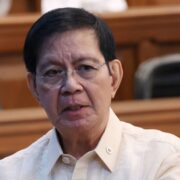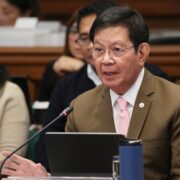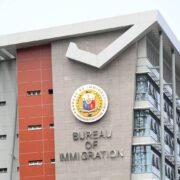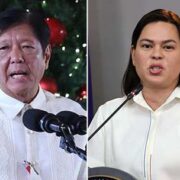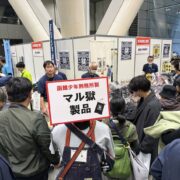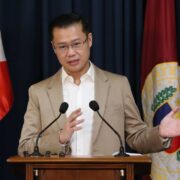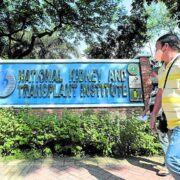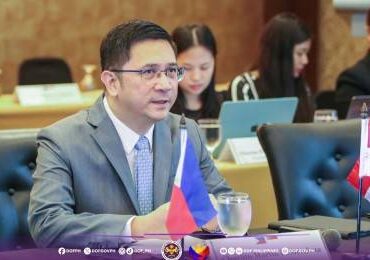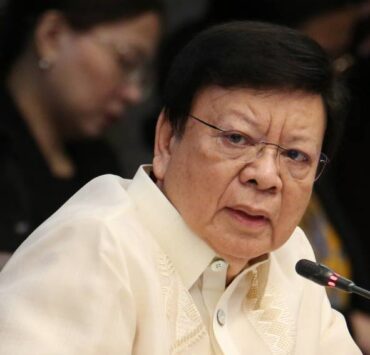Ashes to ashes: The five phases of Johnny Enrile
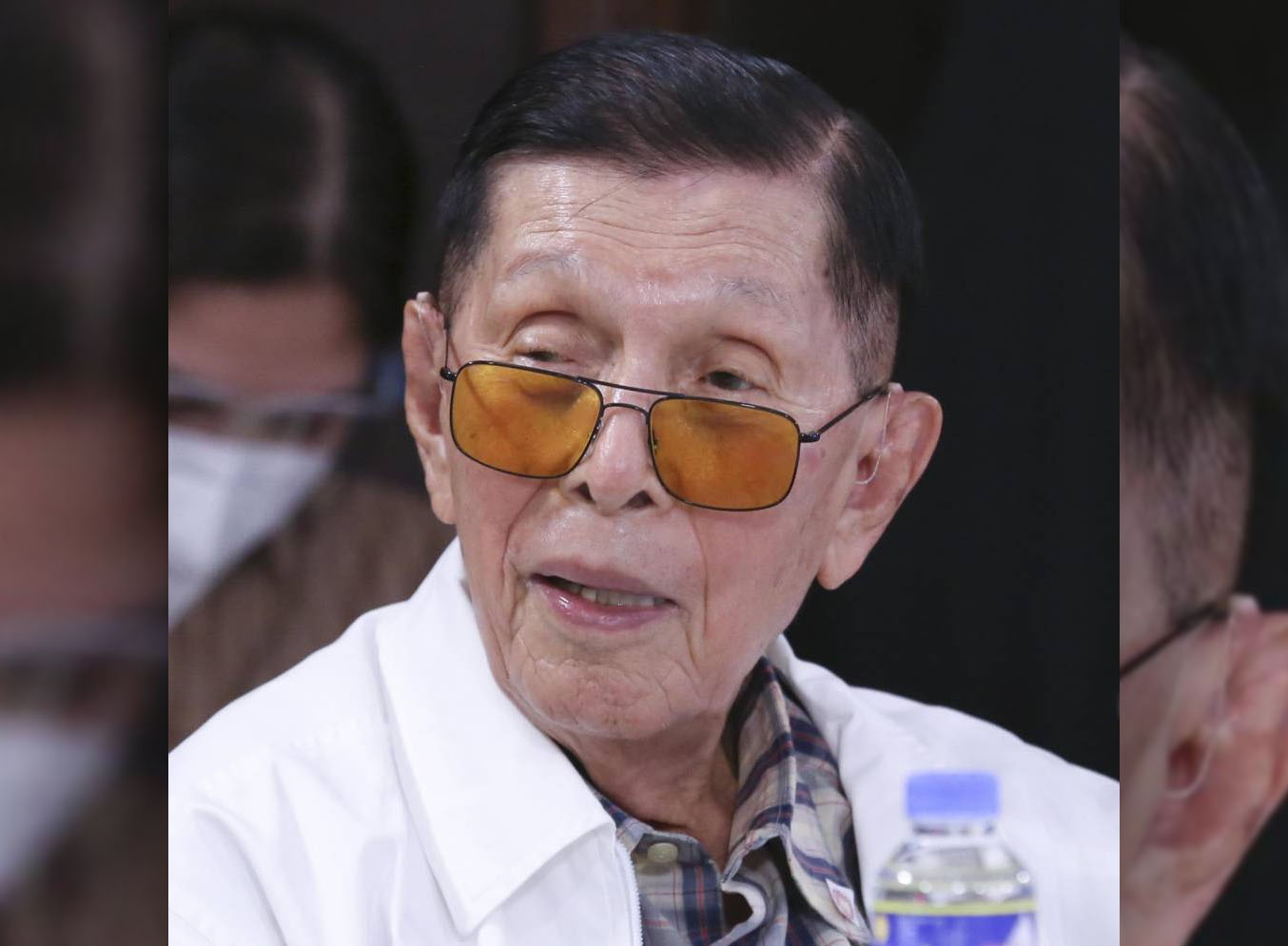
(First of three parts)
Juan Ponce Enrile, once Ferdinand Marcos Sr.’s principal lieutenant in planning dictatorship only to oust him, ended up half a century later as consiglieri to the son.
In 2010, writing for Rogue Magazine, I made Enrile the face of the Emperor card in the Tarot deck and wrote: “Nothing grows under the shade of the Banyan Tree, or so goes the fortune cookie saying familiar in our part of the world. The Patriarch is political colossus, living monument, and wizened, formidable operator to whom all scurry for favor and preferment. For those purely interested in power, or for whom ability fortunately marries with fortune, resulting in both prestige and political clout, to be considered a patriarch is the summit of a career, and the foundation for an enduring line of leaders. Too much success can, of course, as the saying implies, stunt the growth of a successor generation, or even of one’s successors. But this is something best left to journalists, historians, and posterity to puzzle over. It would be impolitic to mention this dire possibility in polite company—or the patriarch’s.”
As it turned out, this was far from Enrile’s political sunset. He would be disgraced again, and rehabilitated again, remaining a durable player in politics for another decade and a half.
With his passing comes the opportunity to take stock of his life, one that spanned five distinct phases in which he was never far from center stage, from the mid-20th century to the first quarter of the 21st century.
Enrile I: The Prodigal Son
Like Ferdinand Marcos, Juan Ponce Enrile was both an outsider and insider who came of age at the moment when the certainties of Philippine society were smashed by World War II. Marcos, despite his accomplishments, had been given short shrift by his more pedigreed peers, though he considered himself provincial gentry: His father had achieved modest political standing, but Ferdinand himself would rise to prominence in part due to the manner in which he defended himself on a charge of political murder, and through shrewd networking forged during the murky years of the Japanese Occupation.
Juan Ponce Enrile for his part, belonged to that subset of the upper class for whom being born illegitimate would prove a temporary but still psychologically searing obstacle. His authorized version of his own story has him growing up as an impoverished son of a laundrywoman; he benefited from the patronage of minor civil servants and officials whose patronage may have been fostered by the knowledge that his father was a former legislator turned partner in one of the most prestigious Filipino-American law firms of the prewar and immediate postwar period.
After the obligatory (because biodata-burnishing) stint as a young guerrilla, he says he embarked on being reunited with his father who not only welcomed him, but took the life-changing decision to legitimize him. With his academic performance, he was in time an up-and-coming lawyer on his own terms, the icing on the cake being that his father made him a junior partner in his firm. There he gained experience as a corporate, and not criminal, lawyer.
Marcos himself, already a coming man before the war, assiduously dedicated himself to arriving in postwar society. He said all the right things but believed none of it.
Enrile II: The Useful Man
By the time the paths of Juan Ponce Enrile and Ferdinand Marcos crossed in 1964, both were men who’d outgrown the period of deference and dependence on the old upper class. In Marcos’ case, aside from cool calculation, luck served him well: two of his fiercest opponents, Eulogio Rodriguez, a durable prewar and postwar machine politician, and Arsenio Lacson, postwar originator of the iconoclastic urban tough guy in urban politics, had died by then.
After 15 years in the Liberal Party during which he’d wrested the Senate presidency, Marcos found his path to the presidency blocked by his erstwhile party chief, and then incumbent President, Diosdado Macapagal, who decided to renege on a previous promise to serve only one term.
Worse, Macapagal had bungled one of the biggest postwar corruption scandals surrounding influence peddling by an American tycoon, Harry Stonehill, deporting him in a panic, which left implicated officials like Marcos looking quite guilty, indeed.
The opposition Nacionalista Party obligingly welcomed Marcos into its ranks, and in the last hurrah of old-time party politics, Marcos engineered a victory in the party convention. He then won the presidency on the basis of being a guerrilla hero confronting an incumbent who’d collaborated with the Japanese.
Political momentum
In 1967, Filipino voters for the first time rejected a proposed amendment to the Constitution. This created the political momentum for the holding of a Constitutional Convention and the possibility of removing, either by amendment or through an entirely new constitution, term limits on the presidency. This in turn opened up one of the tracks Marcos would pursue to perpetuate himself in power.
The moves would require, first of all, his reelection: a feat at which all his predecessors, bar one, had failed.
Up to 1967, Enrile had served in the fiscal side of things, in sensitive posts, first as head of the Bureau of Customs, then as head of the Insurance Commission, and then undersecretary and finally secretary of finance. The series of appointments leading up to 1967 is revealing of Enrile’s usefulness, since that year (1967) also happened to be a crucial midterm election year. (In the Philippines, presidential midterms, in which control of the Senate is decided for the rest of the President’s term, has always served as a referendum on the incumbent president, determining if they will enter the preparatory period for seeking reelection as fatally damaged lame ducks or viable candidates).
From his first job in the politically sensitive, because extremely lucrative, Bureau of Customs, to heading the entire Finance Department, Enrile was obviously the man with the smarts and finesse to build up the Marcos war chest.
But in 1968, Enrile was given a new job: secretary of justice, one he held throughout the period in which Marcos sought, and achieved, the only successful presidential reelection bid since Manuel Quezon’s in 1941. Enrile managed to retain—and increase—Marcos’ confidence in him despite having been widely considered an ally of Rafael Salas, who’d been Marcos’ dynamic executive secretary but who was purged in July 1969. Enrile was proving adept at the byzantine intrigue of court life.
Sub rosa asignment
Marcos himself in his diary wrote that he assigned the task of looking into how different regimes declared, and ruled, under a state of emergency, in that watershed year, 1969. Again, in a period of increasing radical protest and intensifying political polarization, the selection of Enrile as secretary of justice points to how useful he was—including his sub rosa assignment of researching how to establish a dictatorship.
By February 1970, shortly after Marcos had been assaulted after his State of the Nation Address before Congress and an urban insurrection by students led to a direct attack on the presidential palace in January of that year, Enrile was given the Defense portfolio.
The Marcos-approved story (in a Marcos propaganda channel) goes that it was an ad hoc assignment due to the inwcumbent secretary of National Defense showing up drunk in the midst of the student assault on the Palace. Another ad hoc move may have been the ill-fated decision to field Enrile as a senatorial candidate, in the unprecedented second midterm election of Marcos, in which his candidates fared badly in marked contrast to his first successful midterm election.
Having fallen on his sword for his chief, electorally speaking, Enrile returned to the Defense department for the main event: martial law.


